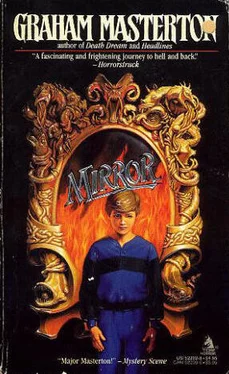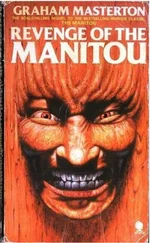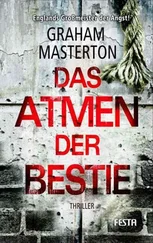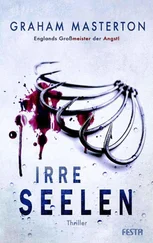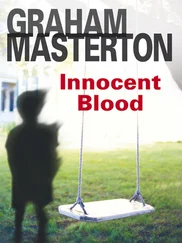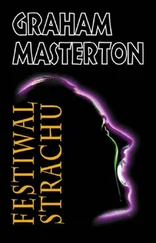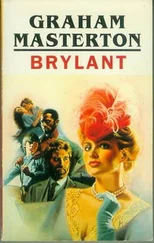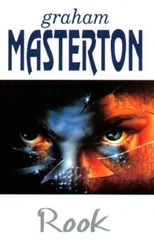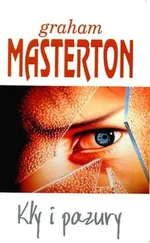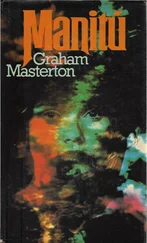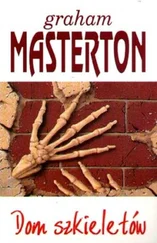Martin wearily rubbed his eyes. 'All right, tell me how to get there. Hang on - let me get my pencil. Okay, left off Alden Drive, just past Mt Sinai. All right. .. give me fifteen minutes at least. I have to make sure that Mrs Capelli can keep an eye on the boy.'
He folded the sheet of paper with Father Quinlan's address, tucked it into the pocket of his jeans, and then went through the hallway to the sitting room. The door was slightly ajar. Martin listened, and all he could hear was steady childish breathing. The little mazik was asleep.
Martin closed his apartment door quietly, then crept downstairs and knocked at Mrs Capelli's door. Mrs Capelli crossed herself when she saw who it was.
'Mrs Capelli, can you keep an eye on the boy for me ... just for an hour or two?'
'Hmh! I should keep a watch on the devil's own? The one who stole my Emilio?'
'Mrs Capelli, please. The chances are that he's completely innocent.'
Mrs Capelli pointed fiercely upstairs. 'If that child is innocent, then God has abandoned this world altogether!'
Eventually, however, Mrs Capelli agreed to keep an ear open for Boofuls, no more. 'If he cries, he cries. I don't like that child. I don't trust him.' Martin gave her two quick kisses, one on each cheek, and galloped downstairs. He U-turned his Mustang on Franklin Avenue and headed westward. He didn't want to waste any more time. Father Lucas had sounded as if he expected the Apocalypse at any moment, or worse.
St Patrick's Theological College was one of those extraordinary 1930s structures that give Hollywood the appearance of being somewhere you remembered from a dream. It had been designed in the style of an English Tudor mansion, with latticed windows and red-brick battlements. It was easy to imagine Errol Flynn in doublet and pantaloons, rapier-fighting up and down the staircases.
Martin parked at the side, where Father Lucas had instructed him, and went up to the illuminated porch marked History Dept/Maintenance. He rang the doorbell and waited. A distant electrical storm flickered like snakes' tongues over the Hollywood Reservoir.
A young priest with a gray tweed sports coat and a shaven head answered the door. 'Yes?'
'I've come to see Father Quinlan. He said it was urgent.'
'Urgent?' the young priest asked. Nothing urgent ever happened at St Patrick's Theological College. The faculty had been discussing the implications of verses 20 and 21 of the first chapter of St Peter's second letter for the past seventeen years, 'no prophecy was ever made by an act of human will', and were still no nearer to an agreement on what they meant.
Martin followed the young priest along a narrow corridor with paneled walls and a highly waxed floor. At the very end of the corridor was a table with a flower arrangement on it; and above the flower arrangement, a painting of St Peter with a radiant gilded halo. Martin's shoes squeaked busily on the floor.
The young priest knocked at the second-to-last door. Martin didn't hear anybody inviting him to come in, but the young priest opened it and admitted Martin to a large untidy study, with leather sofas, side tables stacked with books, and a desk crowded with files and Bibles and framed photographs and dirty coffee cups.
Father Lucas was sitting next to the fireplace, although there was nothing in the hearth but an arrangement of dried flowers. Beside him stood a thin tall priest with a pinched face and long white hair and dark expressive eyes. He came forward to greet Martin with all the easy, stylized movements of a ballet dancer.
'I appreciate your promptness, Mr Williams,' he said, smiling. 'I am Father Quinlan, the head of historical studies here at St Patrick's.'
The young priest had been standing in the doorway, obviously hoping to pick up some gist of what they were going to discuss; but Father Quinlan, still smiling, waved him away. 'Do sit down,' he said to Martin. 'Perhaps you'd care for a glass of wine.'
'Don't mind if I do, thanks,' Martin told him, and sat down on one of the leather sofas. The seat cushion let out a loud exhalation of dusty air. Martin gave Father Lucas an embarrassed smirk. On the low coffee table between them, the black-tissue package had been opened out and the horny claws neatly laid out in a line. The fragment of hair had been laid to one side, along with the key.
Father Quinlan went to his bureau and stood with his back to Martin, carefully pouring out a glass of red wine from a Baccarat decanter.
'Mr Williams,' he said, 'it seems that you have managed to open up what you might call a Pandora's box.'
'You said it was urgent,' Martin commented.
Father Quinlan came over and handed him his glass. The wine smelled strong and aromatic. ' "Urgent" was actually an understatement.' He smiled. 'Actually, it's critical.'
He watched as Martin sipped the wine and then beamed. 'Stag's Leap, 1976.1 thought you'd enjoy it.'
'Tell me what's critical,' said Martin. He wasn't a wine connoisseur. As far as he was concerned, wine in itself was nothing important. It was the occasion on which you drank it, and whom you drank it with - that was what made an average wine into a memorable wine. Tonight he felt sour and edgy and any wine would have tasted the same.
Father Quinlan sat down at the opposite end of the sofa and elegantly crossed his legs. 'Father Lucas came to me yesterday and told me how worried he was. He described his experience with the mirror. Quite frightening, yes? to say the least. And he told me that both you and Mr Capelli appeared to be extremely anxious about what had happened to Mr Capelli's grandson.'
'If you want to talk about understatements,' Martin remarked, '"extremely anxious" is an understatement. Emilio disappeared into that mirror and we still haven't been able to get him out again.'
Father Quinlan nodded, to show that he understood, or — even if he didn't understand — that he was willing to help. 'Let's talk about mirrors first,' he suggested. 'Mirrors in general, and then your particular mirror.'
Martin glanced toward Father Lucas; but Father Lucas took off his magnifying spectacles and nodded reassuringly. 'All right,' said Martin, 'let's talk about mirrors in general.'
'There's an old Yiddish story about mirrors,' said Father Quinlan. 'A rich man tells his rabbi that he sees no point in giving charity to the poor. So the rabbi takes him to the window and tells him to look out over the marketplace, and then says, "What do you see?" The rich man says, "People, of course." So then the rabbi holds up a mirror in front of him and says, "What do you see now?" and he says "Myself." Well, the rabbi smiles and says, "Window and mirror, two pieces of glass, that's all. But it's extraordinary how a little silver makes it impossible for a man to see anything through that glass but himself.'"
Father Quinlan sipped his wine, obviously conscious that he may have sounded too simplistic and patronizing; a fault with most priests, even when they mean it kindly. But then he said, 'Mirrors capture the soul, Mr Williams. Not metaphorically, but literally. They really do. They capture living pieces of our lives and our characters whenever we pass in front of them. Sometimes, in moments of terrible stress, they can take almost all of us.'
Martin deliberately said nothing but waited for Father Quinlan to continue.
Father Quinlan looked at Martin keenly, as if he were challenging him to not to believe in what he was saying. 'A mirror is like a living camera, Mr Williams. It's no coincidence that silver forms the backing for mirrors; and that silver salts are the light-sensitive medium which makes photography possible. Neither is it a coincidence that silver bullets kill those unfortunate afflicted people who are popularly known as werewolves. Like a mirror, like a photograph, a silver bullet instantaneously absorbs the wolf-image which has overwhelmed the human-image.'
Читать дальше
